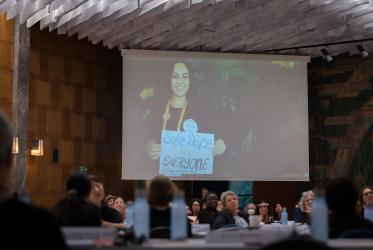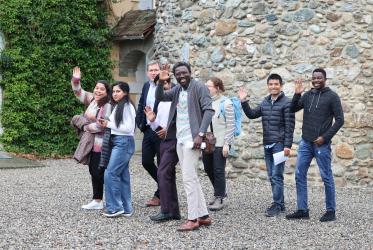Displaying 1 - 20 of 142
A global outlook from different angles
10 April 2024
Que peuvent faire les Églises pour prévenir l’esclavage moderne?
26 February 2024
What can churches do to prevent modern slavery?
22 February 2024
Women and children in Gaza bearing brunt of ongoing war
16 January 2024
Ellyanne Chlystun-Githae Wanjiku to COP28: “listen more to children”
13 December 2023
Young Black Europeans: “common witness has an open ear”
30 November 2023
WCC institute encouraged rethinking theology
23 November 2023














